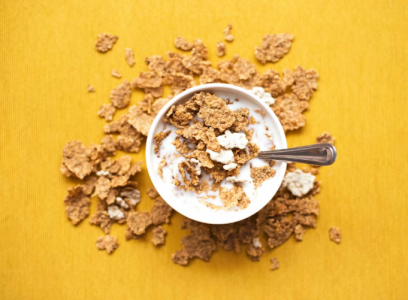Not your typical suspect: this breakfast item may increase cancer risk
- Replies 0
Millions of people start their mornings with a familiar routine that feels comforting and convenient. Brightly colored boxes line grocery store shelves, promising energy, taste, and a good start to the day.
While some breakfast choices have long been known to carry health concerns, others may not be as safe as they appear.
Recent findings are pushing experts to look more closely at what’s really inside these everyday staples.
While bacon and sausages have long been criticized for their links to serious health risks, sugary breakfast cereals are also drawing concern from researchers.
Many of these cereals fall into the category of ultra-processed foods, or UPFs, which are loaded with additives such as dyes, sweeteners, thickeners, and preservatives.
UPFs have been tied to rising rates of obesity and diabetes, and new studies now link them to cancers and dementia.
Their packaging often promotes them as part of a balanced breakfast, making them especially appealing to children.
According to new CDC findings, 55 percent of daily calories consumed by Americans come from UPFs, with children and teens getting nearly two-thirds of their calories from these foods between 2021 and 2023.
UK researchers have found that for every 10 percent increase in UPF consumption, the overall cancer risk rises by 12 percent.
The strongest connection was observed between UPF intake and breast cancer, with an 11 percent higher risk for each 10 percent increase in consumption.
These findings add to growing evidence that heavily processed foods may play a larger role in chronic disease than previously understood.
Also read: Are these everyday foods secretly hurting your health? What science now says about ultraprocessed items
The study, published in the BMJ, followed over 100,000 French adults between the ages of 18 and 72, with an average age of about 43.
Participants recorded everything they ate and drank over three random 24-hour periods every six months, a process that lasted from a few years to up to eight years.
Researchers classified UPFs as including packaged bread, breakfast cereals, snacks, candies, sodas, chicken nuggets, instant noodles, frozen meals, and ready-to-eat products.
This approach allowed scientists to closely track eating habits and match them against reported cancer diagnoses over time.
Throughout the study, more than 2,200 participants reported a new cancer diagnosis, which was confirmed through medical records, hospital reports, and expert committee review.
Of these, 739 were breast cancers, 281 were prostate cancers, and 153 were colorectal cancers. While no statistically significant link was found for prostate and colorectal cancers, a borderline trend suggested a higher colorectal cancer risk with greater UPF intake.
The consistency of the breast cancer link across participants strengthened the researchers’ conclusions.
Sugary cereals and other UPFs made up a significant share of the diets studied, with cereals and starchy foods accounting for 16 percent, sugary products 26 percent, and sugary drinks 20 percent.
Also read: 6 dietitian-approved cereals that can help lower your cholesterol
Processed fruits and vegetables, such as canned peaches or seasoned peas, accounted for another 15 percent. These foods often contain artificial flavors, colors, sweeteners, and other industrial ingredients not used in home cooking.
Methods like hydrogenation, extrusion, and deep-frying are commonly used to produce them. Additives like emulsifiers, which give certain foods a smooth texture, have been tied to increased colon cancer risk because they can damage intestinal barriers and cause inflammation.
Kids aged 6 to 11 consume the most UPFs, getting 65 percent of their calories from them, with adolescents aged 12 to 18 slightly lower at 63 percent.
Adults between 19 and 39 get 54 percent of their calories from UPFs, while those over 60 consume about 52 percent. These numbers highlight how deeply these foods are embedded in the modern American diet.
Read next: New study uncovers disturbing link between a household favorite and rising cancer cases

Do you regularly check the ingredient lists on the breakfast foods you eat? Many people are surprised to find that even items marketed as wholesome can be filled with industrial additives. Which processed breakfast food shocked you the most once you learned what was in it? Share your thoughts in the comments and help others become more aware of what’s really in their morning meal.
While some breakfast choices have long been known to carry health concerns, others may not be as safe as they appear.
Recent findings are pushing experts to look more closely at what’s really inside these everyday staples.
While bacon and sausages have long been criticized for their links to serious health risks, sugary breakfast cereals are also drawing concern from researchers.
Many of these cereals fall into the category of ultra-processed foods, or UPFs, which are loaded with additives such as dyes, sweeteners, thickeners, and preservatives.
UPFs have been tied to rising rates of obesity and diabetes, and new studies now link them to cancers and dementia.
Their packaging often promotes them as part of a balanced breakfast, making them especially appealing to children.
According to new CDC findings, 55 percent of daily calories consumed by Americans come from UPFs, with children and teens getting nearly two-thirds of their calories from these foods between 2021 and 2023.
UK researchers have found that for every 10 percent increase in UPF consumption, the overall cancer risk rises by 12 percent.
The strongest connection was observed between UPF intake and breast cancer, with an 11 percent higher risk for each 10 percent increase in consumption.
These findings add to growing evidence that heavily processed foods may play a larger role in chronic disease than previously understood.
Also read: Are these everyday foods secretly hurting your health? What science now says about ultraprocessed items
The study, published in the BMJ, followed over 100,000 French adults between the ages of 18 and 72, with an average age of about 43.
Participants recorded everything they ate and drank over three random 24-hour periods every six months, a process that lasted from a few years to up to eight years.
Researchers classified UPFs as including packaged bread, breakfast cereals, snacks, candies, sodas, chicken nuggets, instant noodles, frozen meals, and ready-to-eat products.
This approach allowed scientists to closely track eating habits and match them against reported cancer diagnoses over time.
Throughout the study, more than 2,200 participants reported a new cancer diagnosis, which was confirmed through medical records, hospital reports, and expert committee review.
Of these, 739 were breast cancers, 281 were prostate cancers, and 153 were colorectal cancers. While no statistically significant link was found for prostate and colorectal cancers, a borderline trend suggested a higher colorectal cancer risk with greater UPF intake.
The consistency of the breast cancer link across participants strengthened the researchers’ conclusions.
Sugary cereals and other UPFs made up a significant share of the diets studied, with cereals and starchy foods accounting for 16 percent, sugary products 26 percent, and sugary drinks 20 percent.
Also read: 6 dietitian-approved cereals that can help lower your cholesterol
Processed fruits and vegetables, such as canned peaches or seasoned peas, accounted for another 15 percent. These foods often contain artificial flavors, colors, sweeteners, and other industrial ingredients not used in home cooking.
Methods like hydrogenation, extrusion, and deep-frying are commonly used to produce them. Additives like emulsifiers, which give certain foods a smooth texture, have been tied to increased colon cancer risk because they can damage intestinal barriers and cause inflammation.
Kids aged 6 to 11 consume the most UPFs, getting 65 percent of their calories from them, with adolescents aged 12 to 18 slightly lower at 63 percent.
Adults between 19 and 39 get 54 percent of their calories from UPFs, while those over 60 consume about 52 percent. These numbers highlight how deeply these foods are embedded in the modern American diet.
Read next: New study uncovers disturbing link between a household favorite and rising cancer cases
Key Takeaways
- According to new CDC findings, 55 percent of daily calories consumed by Americans come from UPFs, with children and teens getting nearly two-thirds of their calories from these foods between 2021 and 2023.
- UK researchers have found that for every 10 percent increase in UPF consumption, the overall cancer risk rises by 12 percent.
- Sugary cereals and other UPFs made up a significant share of the diets studied, with cereals and starchy foods accounting for 16 percent, sugary products 26 percent, and sugary drinks 20 percent.
- Additives like emulsifiers, which give certain foods a smooth texture, have been tied to increased colon cancer risk because they can damage intestinal barriers and cause inflammation.
Last edited:







